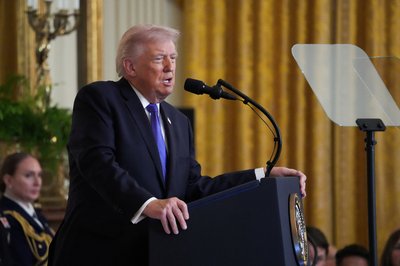NOTE: If you are short on time, watch the video and complete this See, Think, Wonder activity: What did you notice? What did the story make you think? What would you want to learn more about?
SUMMARY
The assassination of Charlie Kirk brought renewed attention to the ways Americans debate and engage in political dialogue. Kirk was known for his back-and-forth conversations with students and moments that often went viral. Judy Woodruff reports on the spectacle that debate has become in the U.S. and what it means for our ability to disagree. It’s part of her series, America at a Crossroads.
View the transcript of the story.
News alternative: Check out recent segments from the NewsHour, and choose the story you’re most interested in watching. You can make a Google doc copy of discussion questions that work for any of the stories here.
WARM-UP QUESTIONS
- Who is Michael Lee, and what is his background?
- What is the purpose of Lee's Civility Initiative?
- Where and When did debate become a formal topic of education?
- How does failure of debate lead to polarization, according to Lee?
- Why did Jason Y. Lee create Jubilee?
ESSENTIAL QUESTIONS
- Do you think it's true that debate and conversation across political differences have the power to reduce hostility and polarization? Why or why not?
- What are two or three rules for debate that you think would help lower hostility and lead to productive conversations across political divides?
Media literacy: Do you think in-person debates or conversations are different than debates designed for social media? If so, what is the difference?
WHAT STUDENTS CAN DO
This segment mentions a famous debate that took place at the Cambridge Union between author James Baldwin and pundit William F. Buckley. The debate centered on race in America, and is perhaps one of the most famous debates of the 20th century. Watch a few minutes of the debate, or all of it if there is time. Then as a class, discuss —
- Did this debate seem to lower hostility or polarization? Did either participant seek to lower polarization? If so, what is an example?
- Why do you think this debate is so well known?
- Do you think audiences would be interested in extended debates on a single topic like this today?
Sign up to receive our weekly newsletter with Daily News Lessons and community events.
To provide feedback on News Hour Classroom's resources, including this lesson, click here.





